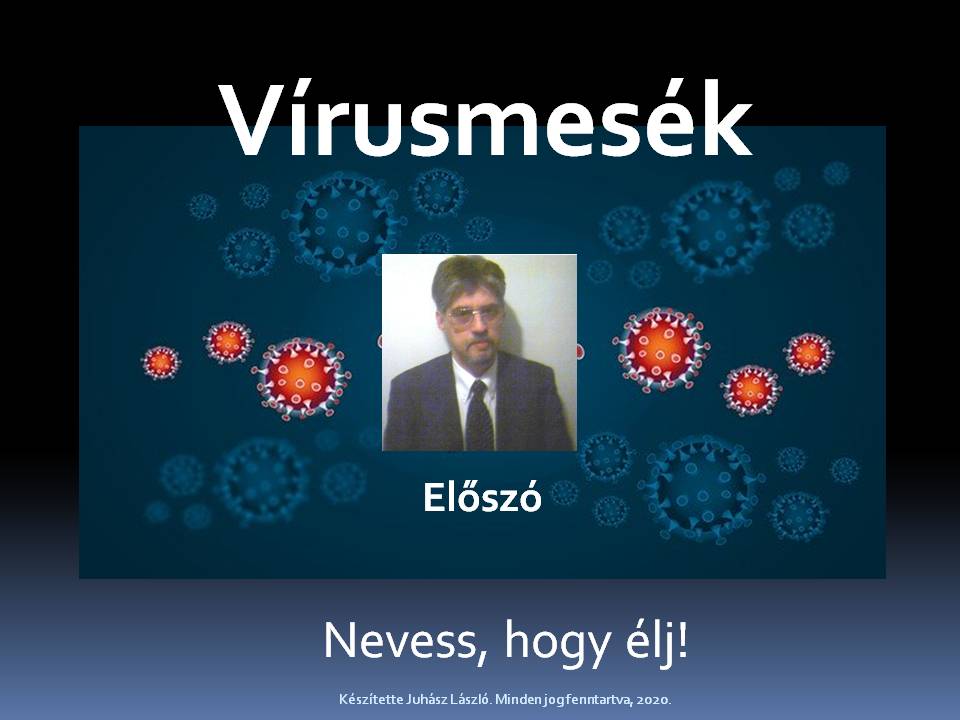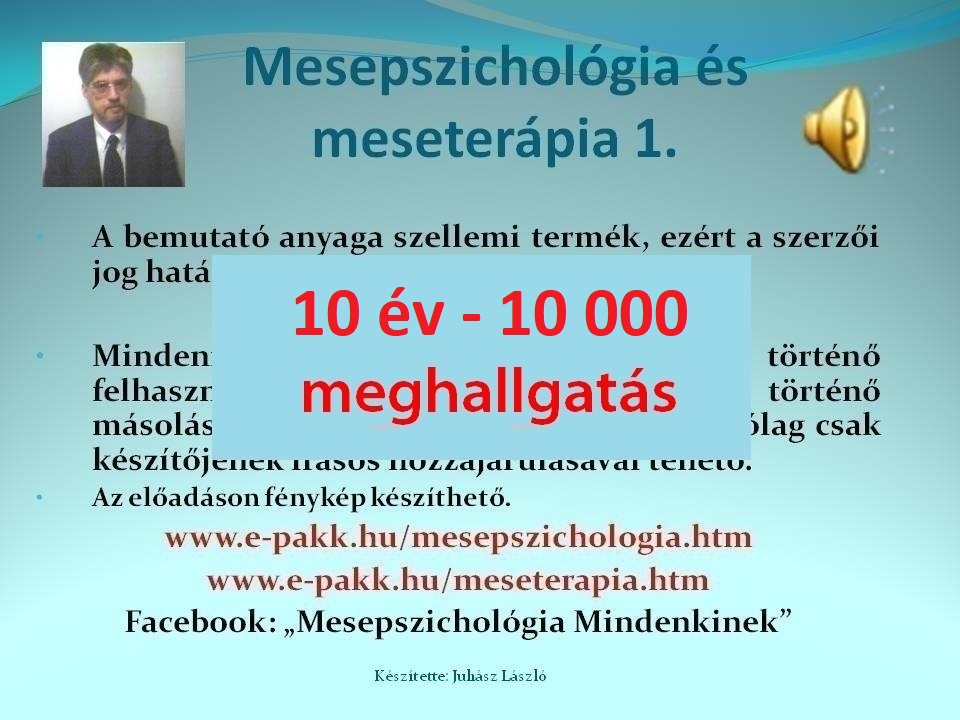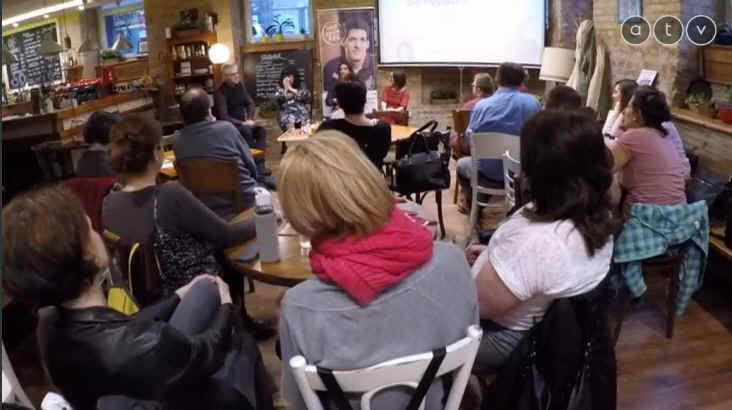Story
Psychology - Story Therapy Course
Only in Hungarian language!
 
Story Hero method
Storyteller complex storytelling diagnostic and
therapeutic method ®
The
training in story diagnostics and story counselling, which has been
taught continuously for nineteen years, is based on a proprietary method
and consists of three separate training modules, 20+20+20 hours, in
total 60 hours, in small groups (max. 8-9 participants), non-accredited,
non-diploma awarding, traditional training, which can be delivered
online in a "live", non-screened format, depending on the
epidemiological situation or needs. The professional content of this
basic training is characterised by the fact that the first module of
this basic training, based on the theoretical and practical background
of story psychology, supplemented by case studies, was included in the
types and years of the 'BA' training by the Institute of Psychology of
the Károli Gáspár Református University from 2005. Between 2005 and
2024, 36 courses, hundreds of students, their stories, several theses,
nearly a hundred workshops and other works, research with students,
conference presentations, and professional and educational publications
are the hallmarks of our professional activities. In 2024, we have been
invited to offer the BA, accredited, traditional methodology, spring
full-time course.
The
practical nature, usefulness, scientific thoroughness, quality of
education and not least the success of the courses and training courses
we organise - although they do not have the same impressive indicators
as university education - is well demonstrated by the fact that many of
the students have volunteered to present their lives, their fates, their
stories and their contexts in case studies, and they include the
training in their CVs.
The aim of the training is to develop the knowledge and other
competences needed to be an effective and successful storytelling
diagnostician, storytelling counsellor and storytelling therapist.
The
aim of the training is to develop the knowledge and other competences
needed to be an effective and successful storytelling diagnostician,
storytelling counsellor and storytelling therapist.
Aims, levels 1. Basic training (20 hours)
Small
group teaching is one of the guarantees of effective training that is
also - in part - tailored to the interests of the students. The aim is
to provide general and professional knowledge about fairy tales, to
acquire knowledge about the morphological and other characteristics of
fairy tales, their psychological content and their consequences, e.g.
for fairy tale diagnostics, for future fairy tale therapy activities,
including some of the literature. By familiarising students with the
psychological processes of fairy tales, the course prepares them to be
able to work independently in the field of fairy tale therapy after
successfully completing at least two levels of the course.
The
students will learn about the Narrative Psychological Processing of the
Story Hero method, which is based on one of the psychological mechanisms
of personality protection, projection, and whose psychodiagnostic
construct corresponds to the criteria of projective tests. The method is
suitable for personality diagnostic, multivariate analysis and, thanks
to the professional knowledge it builds on, can also be integrated into
a variety of therapeutic methodologies, counselling and therapeutic
activities. Case studies, small samples of several hundred people based
on convenience sampling, professional theses, workshops and researches
confirm the professional and scientific soundness of the method, its
suitability for counselling and for the detection and treatment of
certain mental disorders. Many students volunteer their own stories for
the training, free of charge.
The
WHO Action Plan (2013-2030) includes community care for mental health
and the most common mental disorders (CMD and its pediatric variant) in
the world. The new therapeutic procedures will be carried out by
semi-skilled therapists under professional guidance and supervision. We
believe this will be the likely future of mesotherapy. Its place in
national public health care can already be defined. Under current
domestic legislation, anyone can become a mesotherapist without
professional training. This is abused by many.
The
basic training does not enable students to practice the method
independently. It does not provide professional qualifications! After
successful completion of the additional intermediate level, they will be
trained for self-employment. They can integrate the method into their
activities and use it at their own risk. They may not teach its
professional material.
In
order to achieve the objectives set, an important part of the course is
to provide students with their own experience, developing their
self-awareness through guided processing of their own written stories,
sometimes validated by psychological measures. Throughout the course,
students will continuously process and analyse in detail their own
narratives, applying what they have learned. In doing so, they will
learn about and experience this method in themselves and through their
peers.
For
the duration of the course, we provide free of charge original, legal,
original literature for learning, self-study and exam preparation! The
cost of receiving and returning the publications is the responsibility
of the student.
The
training does not require any special qualifications or special
conditions, and the material can be learnt by anyone.
Those who complete the training with a successful home examination will
receive a certificate of recognition, which certifies an adequate level
of knowledge of the method and the possibility to enrol for a second
level of practical and further training.
Intermediate
level (20 hours)
The
students will continuously experience and conduct their own voluntary
cases, with the help of a therapy diary, etc., in vivo, live, in
practice, by supervising, carrying out and practicing the method. With
support (supervision), they prepare for their future autonomous activity
through online, live training, weekly individual and group sessions.
Occasionally there will be invited guests therapists who have completed
the training, experienced the method and are actively using it.
Throughout the training, the students will practice and develop their
skills and competences as storytelling diagnosticians and therapists
with the help of themselves and their peers.
For
the duration of the course, we provide free of charge original, legal,
original literature for learning, self-study and exam preparation! The
cost of receiving and returning the publications is the responsibility
of the student.
The
practical training is completed with a home examination, a full written
and oral case study and an evaluation. Upon successful completion, the
student is entitled to a certificate, independent case management and
enrolment in the third level of training. It does not provide professional qualifications!
Individual
advanced training (20 hours)
Through
individual training, internships, specific training and case studies,
students deepen their knowledge, practice, develop their competences to
a higher level and become fully capable of working independently.
The instruktor
He
is a psychologist with several degrees and diplomas. Since 2005 - with
minor interruptions - he has been an invited lecturer at the Institute
of Psychology of the Károli Gáspár University of the Reformed Church
in Hungary. Lecturer in adult education professional organisations,
speaker at professional conferences, author and co-author of several
scientific publications.
Publications
-
Juhász
László (2022): Mesék
útján. in: Boldizsár I., Luzsi M. (Szerk., 2022) Mese.-
Mese és gyermek-. Benedek Á. Budapest.
-
Juhász
L. & Siklós Anita (2016): Intézményesített meseterápia –
Egy új óvodai egészségfejlesztő mesealapú játékprogram
hatásvizsgálata. in: Kolosai, N., M. Pintér T. (szerk.)
(2016): A gyermekkultúra jelentősége. ELTE TÓK. Budapest,
212-224.
-
Gubányi
M. & Juhász L. (2014): Archetípusok és szükségletek a mesékben.
in: Fülöp J., Mirnics Zs., Vassányi M. (Szerk., 2014):
Kapcsolatban – Istennel és emberrel. Pszichológiai és bölcsészeti
tanulmányok. Károli Gáspár Református Egyetem, L’ Harmattan
Kiadó. Budapest, 290-298.
-
Juhász
L. (2017): Mesepszichológiától a meseterápiáig. in:
Szávai I. (Szerk., 2017): A mese hídszerepe. Pont Kiadó.
Budapest, 91-104.
-
Juhász
L. (2014): Mesepszichológiától a meseterápiáig. in:
Szávai I. (Szerk., 2014): A mese hídszerepe. Fordulópont 63. Pont
Kiadó. Budapest, 89-102.
Copnferences,
presentations
-
2022
Magyar Népmese Napja: Mesehős, komplex
személyiség-, mesediagnosztikai és -terápiás módszer.
-
2019
Magyar Népmese Napja: Miért meséljünk?
-
2018
Nem Adom Fel Étterem és Kávézó: Sorsváltó mesék.
-
2017 Pszichoterápia folyóirat
13. konferenciája: Mesehős komplex mesediagnosztikai és
-terápiás módszer
-
2017 Gondolkodni – más –
hogy? II.: Varázslatos gondolkodás
-
2017
Magyar Pszichológiai Társaság XXVI. Országos Tudományos Nagygyűlése:
Mesehős komplex mesediagnosztikai és -terápiás módszer alkalmazási lehetőségei
-
2016 Gondolkodni – más –
hogy?: Mondókamesék mesepszichológiája
-
2015
A Magyar Pszichológiai Társaság XXIV. Országos Tudományos
Nagygyűlése:
A Mesehős komplex
mesediagnosztikai és -terápiás módszer egyéni diagnosztikai alkalmazási
lehetőségei
-
2014 Magyar Családterápiás
Egyesület: A Mesehős
komplex mesediagnosztikai és
-terápiás módszer egyéni
és családterápiás alkalmazási lehetőségei
-
2014 Gyermekkultúra
konferencia és kiállítás: Intézményesített meseterápia
-
2013 Kutatók éjszakája, más
években is: pl. Tiltás-terápia
-
2012 Tükröm-tükröm
mesekonferencia: Mesekutatás beszámoló
-
2011 Faluház fesztivál:
Mesepszichológia és a mesepedagógia összekapcsolása
-
2010
Péceli Pedagógiai Napok: Mesepedagógia másképp, Mesehipnózis
-
2009 Újbudai Pedagógiai
Napok: Mesekutatás
-
2008 Népmese Napja: Meselélektan
For
more, complete information click on the presentations
page!

Details of the training
>> The concrete
psychology of fairy tales<< The
course is taught with a variety of topics based on our many years of
teaching experience. The practical, user-oriented teaching material and
the professional composition of the course correspond to the
qualifications of the candidates and students. For clinical and/or child
psychologists and psychology students, it primarily covers the
diagnostic and therapeutic contexts of storytelling and other
therapeutic issues. The processing is supported by the presentation of
their own and other case studies and in all cases by group processing of
their own experience, i.e. a self-written fairy tale. For other
qualifications, we have prepared ways of using fairy tales in their own
home or in their field of specialisation, providing their own
experience. For example: for developmental, psycho-educational and
naturopathic therapists, we present the developmental and natural
healing effects of fairy tales, their uses and possibilities. For those
with other qualifications (e.g.: ethnography and Hungarian studies
students, economists, lawyers, etc.), it contains a wealth of knowledge
material on the professional, personal and home use of fairy tales.
Concepts,
definitions
Neither the
international nor the national literature provides a precise definition
and interpretation of the new concepts we consider important. Therefore,
we will first attempt to.
Fairy Tale
psychology
One of the new,
emerging fields of psychology is the psychology of fairy tales, which is
based on the results of research in several disciplines (ethnography,
linguistics, archaeology, cultural anthropology, religious history,
biology, neuroscience, etc.) and on its own research, and investigates
the effects, place and role of fairy tales in human development at
different stages of life. Psychic processes and events are incorporated
into the characteristics of real fairy tales.
Tale diagnostics and
story therapy
The cultural and social
practice and tradition of storytelling and listening to stories is the
key to the mental and physical health of individuals and society. The
physiological and psychological processes of storytelling heal both.
Most mental and physical illnesses can be explored, treated and cured
through stories. The exploratory method is called diagnostic
storytelling, and its conscious application for healing purposes,
based primarily on psychic processes, is called story therapy.
With stories and story
therapy, mood disorders, fears, anxieties, depressions, certain types of
neuroses and phobias can be cured quickly and excellently. Patients who
have been "treated" with medication for years can become
symptom-free and drug-free in a few months. Story-telling in childhood
helps to maintain a presumed innate hypnabiility, a susceptibility to
hypnosis. With hypnotherapy, years of drug "treatment" for
depressed patients can be replaced with a few treatments.* We don't need
to go into the individual, family, social, socio-economic, health and
psychological consequences of this, do we? With stories, aggression,
which is one of the behavioural disorders, and sibling phobia can be
solved. There is no psychotherapeutic method that is not linked in some
way to imagination and fairy tales!
Our students
Our past and present
students have a wide range of qualifications. Some of them are and have
been clinical and child psychologists, psychology students,
developmental educators, ethnography and Hungarian students, economists,
naturopaths and others.
Back to page
|
